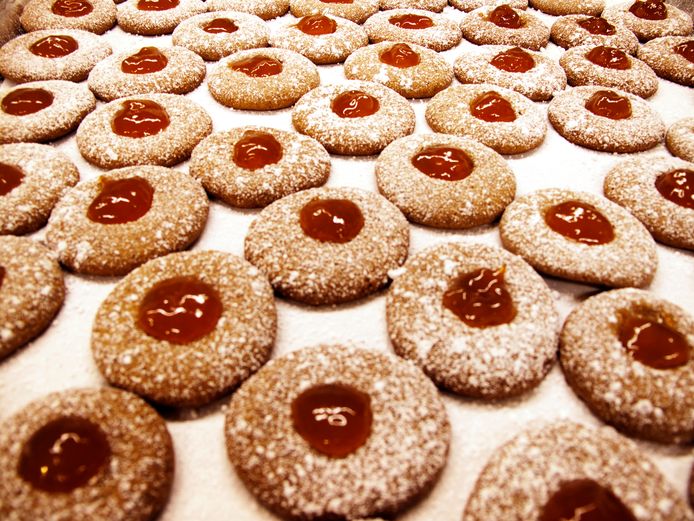Salt is essential for our body, but too much can damage our kidneys. Today is World Kidney Day, which highlights the importance of healthy kidneys. This is much needed, because we still eat too much salt and one in ten people worldwide has kidney damage.
The National Institute for Public Health and the Environment (RIVM) recently released a new report , which shows that adults still get too much salt. The study looked at men and women between the ages of 31 and 50 in the north of the country. Half of the men consume more than 11 grams of salt per day and half of the women more than 8 grams. The recommended maximum is 6 grams.
Our western diet contains too much salt, says Liffert Vogt, professor of Kidney Diseases at Amsterdam UMC. “Our kidneys have to process a lot of salt. As a result, blood pressure rises and many people suffer kidney damage – without even noticing it. The complaints only arise when your kidneys are only working for 30 percent.”
More inflammatory cells through salt
In more than half of people, blood pressure rises with age. This increases the risk of kidney disease, cardiovascular disease and brain haemorrhage. “In countries where salt consumption is very low, we see much less of an increase in blood pressure later in life. In those countries, for example, we also see far fewer brain haemorrhages. In addition, we see in our studies that a diet with a lot of table salt also causes an increased number of inflammatory cells in your blood vessels. A kind of unlimited activation of your immune system.”
Kidney damage is a big problem
One in five people with high blood pressure develops kidney disease and currently one in ten people worldwide has kidney damage. A major problem, says Annemiek Dorgelo, prevention program manager at the Kidney Foundation. “The prediction is that by 2040 kidney problems will be the number five cause of death. This will have a huge impact on our lives and healthcare costs. So it’s a problem that affects everyone, not just a small group.”
Many of these problems can be solved by simply eating less salt. With a maximum of 6 grams of salt per day, the blood pressure of healthy people can drop by about 2 millimeters of mercury (mmHg). For people with high blood pressure or kidney disease, the difference is even greater. “If you go from a ‘normal’ western diet with a lot of salt, to a diet with the recommended amount of salt, your blood pressure drops by about 10 to 15 mmHg. That can save one or two blood pressure pills,” says Vogt. “Some people have untreatable high blood pressure, who sometimes take up to five blood pressure pills a day. It saves them about 30 mmHg if they eat less salt, so about two to three pills. The amount of proteins that kidney patients leak into their urine also decreases by 25 to 30 percent. That also saves a pill.”
Go into the kitchen and experiment with different fresh herbs. This way you no longer need ready-made products
Most people don’t know that they eat too much salt. Dorgelo: ,,Over 85 percent of the Dutch eat too much salt, but about a quarter are aware of this. Most people think that they don’t eat too much salt at all, because they don’t add salt to the food themselves. They don’t know that most of what we ingest is in processed products.”
True salt bombs are everyday products such as cheese, processed meat, meat products, meat substitutes, savory snacks, stock cubes, ready meals, ice cream, biscuits, ready-made sauces and soups.
Fresh herbs
“Go for fresh,” Vogt says. “That’s the golden rule.” Make your own pasta sauce from fresh vegetables and use fresh herbs as seasonings. Top your sandwich with vegetables or fruit more often, such as tomato, strawberries, banana or avocado. “Swap your salty cheese for cottage cheese or put chicken breast instead of salami on your sandwich,” Dorgelo advises. She also emphasizes the importance of fresh products: “Go into the kitchen and experiment with different fresh herbs. This way you discover the tastiest flavors and you no longer need ready-made products.”
Vogt regularly sees patients in his doctor’s office who, by eating salt consciously, were able to stop taking medication for their high blood pressure and/or kidney disease. But a large proportion of patients fail to do so. “Despite the fact that kidney patients make a lot of effort, most still eat too much salt. This is often not due to them, but to the fact that the supermarkets are full of products rich in salt.” According to the professor, there is an important role for food producers and the government. His prayers have been answered, because this year the National Approach to Product Improvement will start .
 Kanawu Radio number 1 news portal
Kanawu Radio number 1 news portal
